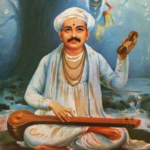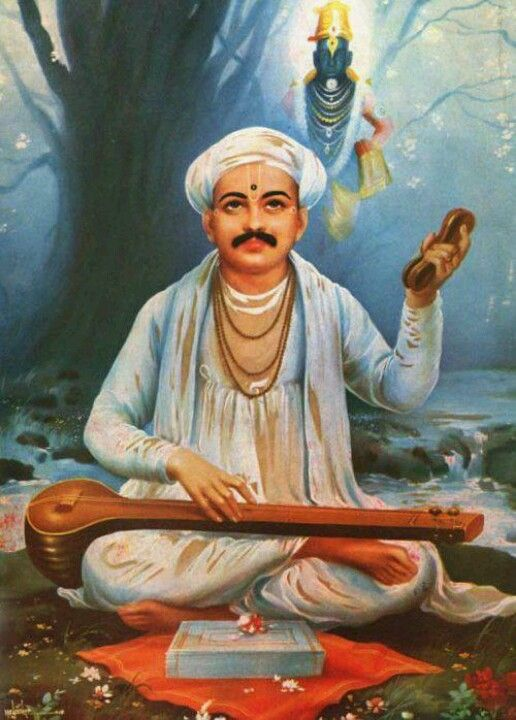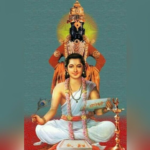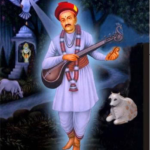Sant Tukaram (1608-1649)
Sant Tukaram (1608-1649) was a prominent Marathi saint, poet, and devotee of Lord Vithoba (a form of Lord Vishnu). Born in Dehu, near Pune, India, Tukaram is celebrated for his abhangas, devotional hymns composed in the local Marathi language. His poetry, characterized by its deep spiritual insights and simplicity, expresses a profound devotion to God and emphasizes the importance of a personal relationship with the Divine.
Tukaram’s life was marked by humility and a deep sense of devotion, often challenging social norms and the rigidity of traditional rituals. He was known for his compassion and his ability to communicate profound spiritual truths through everyday language. His hymns and teachings focus on devotion, surrender to God, and living a life of virtue and love.
His influence extends beyond his poetry; Tukaram is also remembered for his role in the Bhakti movement, which emphasized personal devotion and rejected caste distinctions and ritualistic practices. His legacy continues to inspire spiritual seekers and devotees across India.









Sant Tukaram’s Divine Bliss: A Journey of Inner Joy
These verses emphasize the inner joy and bliss that comes from spiritual realization and devotion, highlighting the deep connection to the divine and the reflection of one’s inner experience in the outer world.
Marathi Lyrics
English Lyrics
English Lyrics and meaning in english
आनंदाचे डोही आनंदतरंग | आनंदचि अंग आनंदाचे ॥१॥
काय सांगो जालें कांहींचियाबाही । पुढें चाली नाहीं आवडीनें ॥२॥
गर्भाचे आवडी मातेचा डोहळा ।
तेथींचा जिव्हाळा तेथें बिंबे ॥३॥
तुका ह्मणे तैसा ओतलासे ठसा । अनुभव सरिसा मुखा आला ॥४॥
Anandache dohi anandtarang,
Anandachi ang anandache || 1 ||
Kaay saango jaalen kaahi chiyaabahi,
Pudhe chaali naahi aavadine || 2 ||
Garbhache aavadi maatecha dohla,
Tethicha jeevhaala tethen bimbe || 3 ||
Tuka mhane taisa otalaase thasa,
Anubhav sarisa mukha aala || 4 ||
Anandache dohi anandtarang,
Anandachi ang anandache || 1 ||
Meaning:
Within the ocean of bliss, waves of joy arise,
The body itself is the essence of happiness.
Kaay saango jaalen kaahi chiyaabahi,
Pudhe chaali naahi aavadine || 2 ||
What can be said? There is nothing left to describe,
I no longer find interest in worldly pursuits.
Garbhache aavadi maatecha dohla,
Tethicha jeevhaala tethen bimbe || 3 ||
The love of the mother is felt in the womb,
In that place, the soul resides and is reflected.
Tuka mhane taisa otalaase thasa,
Anubhav sarisa mukha aala || 4 ||
Tuka says, just as one has experienced,
So the reflection appears on the face.


